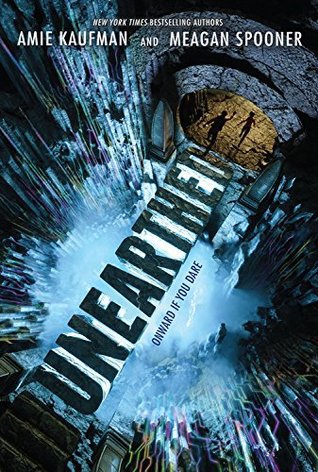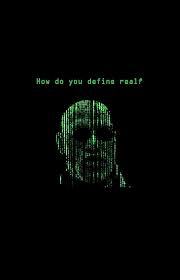
Naively, when Soldier in the Mist was first published, its existence as an inversion of The Book of the New Sun led me to anticipate another tetraology, though the intervention of There Are Doors indicated that Wolfe was not working on Latro in the same manner he had on Severian. Thus it came as a shock, and a disappointment, when Soldier of Arete, published in 1989, turned out to be the end of the series.
(Yes, there is a third Soldier book, but this was written a decade and a half later, set in a completely different land, and is based only on the ‘assumption’ that it’s narrator is our familiar Latro.)
There’s a gap between the end of the previous book and where things commence in Soldier of Arete, though Latro and his small band are still in the conquered city. The break is because Latro needed a new scroll and only now is one found for him. In the introduction, Wolfe makes the point that there are two further substantial breaches in the ongoing story: one near the centre of the scroll where it has gotten wet and the scroll has disintegrated, and one towards the end, where Latro appears to have gone through a prolonged period of morbid depression and simply refused to write.
The reader’s challenge is to make a kind of divination as to what occurs in these lengthy lacunae.
Right from the beginning, I found Soldier of Arete a much less engaging book than its predecessor. The title derives from the Greek term for excellence, or virtue, rather than any place, though I will always associate it with the French term for a narrow ridge. The book is very much a continuation of Soldier of the Mist (the lacuna between novels seems to be no more than a few days) and that is it’s major problem: that it is too much ‘more of the same only different’.
Both of Latro’s books are episodic by their very nature: every day he wakes up with no memory of who or or or where he is, nor of those around him. Chief among these, as his protectors, are the faithful Io, his young girl slave, and Seven Lions, the African mercenary whom Latro usually refers to as the black man, not for any racist reasons, but simply because he is the only non-European.
Much of the book is taken up with a mission to Thrace to retrieve an enemy combatant, under the command of Hypereides, of whom Latro and Seven Lions are slaves. Latro, who has retained that his real name is Lucius (or ‘Wolf’), seems to accept his slavery as a fact, perhaps because it slips from him every night, although his underlying attitude is hostile to the whole concept: every time Io reminds him she is his slave, Latro immediately plans to free her, though it’s the last thing she wants or, in practical terms, needs.
To she and Seven Lions, Latro is their dear friend who needs their protection because of his condition. Though Hypereides is similarly solicitous of Latro, in his way, it is as of a tool: Latro’s usefulness, his competence, his arete is what makes him so valuable.
The book’s third section is its most fulfilling. It is a rising tide of success for Latro, culminating in his, and Seven Lions’ manumission from their slavery. Though this is a fulfilment, and a reward for Latro’s uncomplaining servitude, as much as his abilities, it raises something of an odd question about Lucius and his underlying nature.
The fact is that, virtually from the beginning of Soldier in the Mist, Latro has been the slave of one person or another. He has acknowledged his status, and acted according to it, yet internally he is no slave. Over and over again, when Io reminds him of herself and her role as his slave, his automatic response is to say that he will free her, not to mention return her to her parents (which she does not want, even if it were possible.
Latro does not naturally accept the institution of slavery, and there are places in his scrolls where, trying to understand himself from within his permanent fog of amnesia, he determines himself to be no slave. Yet he accepts being a slave with complete readiness, and with no apparent resentment of his slaver.
So his freedom, along with his declaration of citizenship, ought to be a high moment for him, when his status equals his instincts.
Why then does he, almost immediately, cease writing in his scroll and, after what seems to be a lapse of some time, have to be badgered with extreme reluctance into taking this up? And why, at this point, is he miserable and morose, resistant to recording what is happening, even when he knows that it is the only way in which he can crate an identity? More than this, though now a free man, why does he brood to the point of wanting to impale himself upon his own sword, Falcata?
I say again, this is Gene Wolfe: do not expect answers except insofar as you can construct them for yourself. What is clear is that, in this final, and relatively short section of this scroll, Latro is far from the self we have followed. He is clearly plotting something that, despite the impossibility of anyone but himself (and subsequently Gene Wolfe) reading his markings, he will not even set out in his scroll.
One theory I have read, that accounts for Latro’s depression, is that he has been taken advantage of, by Pasicrates, who has lost a hand to Latro due to a sword-stroke, who pretends goodwill and forgiveness to conceal hatred; that Pasicrates has used Latro’s inability to recall from one day to the next, to suborn him sexually, to claim that they are lovers, and to use Latro in ways that Latro, instinctively, abhors and which, in seeming to be the course of his life, sends him into an abyss of self-loathing.
It is a convincing explanation, and whilst Wolfe as a writer has none of the overt prejudices against homosexuality of Alfred Bester, he is nevertheless a deeply Catholic believer and very masculine in his personal mores. This renders such a possibility perfectly feasible, albeit an unpleasant prospect from both angles.
Whatever the reasons, they are enough to prompt Latro to plotting, and to an abrupt ending to both book and series. Pindaros the Poet reappears, very late on, and just in time to write the final, brief section. Latro has planned a getaway, freeing others and leaving Greece by a stolen ship, bound for Rome, and his home. Significantly, he has left his scrolls behind, and thus the entirety of the life he has spent in Greece, and as Latro.
Given my expectations as stated about when I first read Soldier of Arete, this ending came as a surprise and a major disappointment. I did not have enough perception to see it coming: indeed, there’s little to foreshadow it except that I should have seen Latro was planning something. The rapidity with which it happened, offscreen, cut the ground out from beneath me. In all subsequent readings, I cannot fully get out from under that disappointment, which did not seem to fit the scenario Wolfe had created in Soldier of the Mist, nor the expectation that the cycle of books would lead to a more comprehensive revelation of Latro’s true name and character, and that that identity would hold some significance.
Soldier of Arete, by cutting that off, cannot exceed disappointment for me, for all its qualities.





